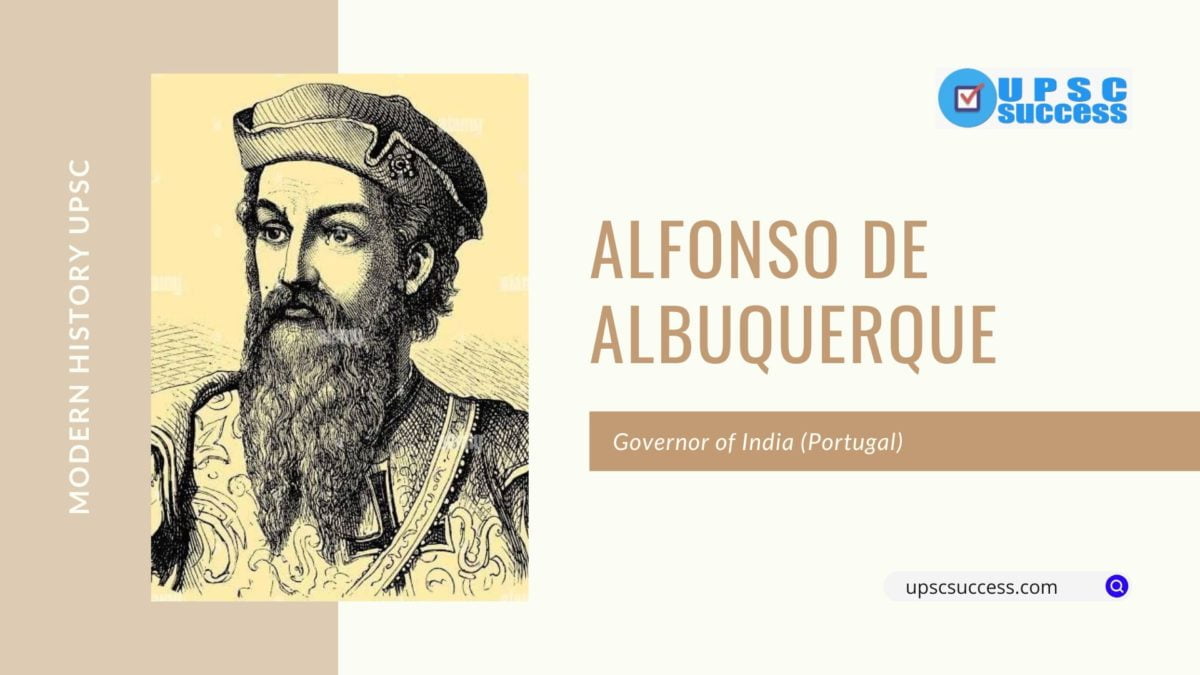Albuquerque, who succeeded Almeida as the Portuguese governor in India, was the real founder of the Portuguese power in the East.
His Policy was of dominating entire oriental commerce by setting up forts in strategic places in Asia and Africa supplemented by a strong navy.
He secured for Portugal the strategic control of the Indian Ocean by establishing bases overlooking all the entrances to the sea.
The Portuguese, under Albuquerque, bolstered their stranglehold by introducing a permit system for other ships and exercising control over the major ship-building centres in the region.
He acquired Goa from the Sultan of Bijapur in 1510 with ease. They were also able to blockade and sack the Bijapuri ports of Danda-Rajouri and Dabhol, thus paralysing Bijapur’s sea trade on the mainland.
They established a fort at Colombo in Sri Lanka, at Achin in Sumatra, and the Malacca port which controlled the exit and entry to the narrow gulf between the Malay peninsula and Sumatra.
An interesting feature of his rule was the abolition of sati. He encouraged his men to take Indian wives.
The Portuguese made two attempts in 1520-21 to capture Diu but both were defeated by its governor, Ahmad Ayaz.
FAQs
Among his achievements, Albuquerque managed to conquer Goa and was the first European of the Renaissance to raid the Persian Gulf, and he led the first voyage by a European fleet into the Red Sea.
Albuquerque was the major figure in the establishment of the Portuguese sea empire in the East. In 1510 he captured Goa, which he fortified and made the chief trading post and permanent naval base in India.
Albuquerque was the major figure in the establishment of the Portuguese sea empire in the East. In 1510 he captured Goa, which he fortified and made the chief trading post and permanent naval base in India. To give it a stable character, he offered lands and subsidies to Portuguese men who would marry native women

